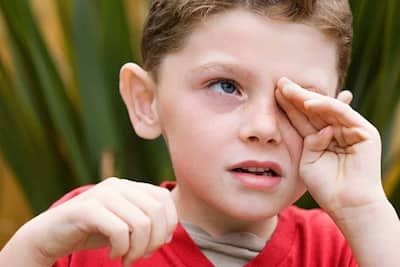
Let’s discuss the connection between allergies and the monsoon season and check out some tips on managing seasonal eye allergies.
As the much-awaited monsoon season graces our nation, bringing relief from the scorching heat, it also ushers in a host of allergies that can dampen our spirits. Among the various health concerns during this time, seasonal eye allergies take centre stage. The rising humidity and dampness in the air create an ideal environment for allergens to thrive, triggering uncomfortable symptoms in susceptible individuals. Dr Chanda Gupta, Senior Consultant, Sharp Sight Eye Hospitals, discusses the connection between allergies and monsoon season and check out some tips on managing seasonal eye allergies.
What Is Seasonal Eye Allergy?
Seasonal eye allergy, commonly called allergic conjunctivitis, occurs when eyes come into contact with allergens such as pollen, mold spores, dust mites or pet dander. During the monsoon season, these allergens are often carried through the air and can quickly come in contact with the eyes, leading to an allergic reaction. Symptoms of seasonal eye allergy include puffiness, redness, itching, watery eyes, and a gritty eye sensation. If left untreated, they can significantly impact one’s quality of life.
Tips For Coping With Seasonal Eye Allergies:
There are several measures individuals can take to cope with seasonal eye allergies during the monsoon season:
- Maintain a clean living environment: Clean your living space, especially areas prone to moisture, such as bathrooms and kitchens. Prevent the growth of mould spores. You can also use vacuum carpets and upholstery frequently to minimise dust mites.
- Practise good hygiene: Wash your hands frequently to prevent the transfer of allergens to your eyes. Avoid rubbing your eyes, as it can increase the risk of infection.
- Keep windows and doors closed: While the allure of a cool monsoon breeze is tempting, keeping windows and doors closed is advisable, particularly during peak pollen hours. This can significantly reduce the entry of allergens into your living space.
- Use protective eyewear: When stepping outdoors, especially on windy days, wear sunglasses or protective eyewear to shield your eyes from allergens. Wrap-around sunglasses provide better coverage and protection.
- Avoid touching your face: Avoid touching your face, particularly the eyes, as it can introduce allergens and exacerbate symptoms. Be mindful of this habit and try to avoid unnecessarily touching your face.
- Consult your ophthalmologist: If symptoms persist or worsen, seeking medical advice from an ophthalmologist or allergist is essential. They can prescribe suitable eye drops or medications to alleviate symptoms and provide relief.
Conclusion
As the monsoon season unfolds, so does the heightened risk of seasonal eye allergies. By understanding the connection between allergies and monsoon and implementing preventive measures, individuals can minimise the impact of these allergies on their daily lives. Remember to maintain cleanliness, practise good hygiene, and seek medical advice when necessary. With these precautions in place, you can enjoy the beauty of the monsoon season while keeping seasonal eye allergies at bay.
READ RELATED: A Beloved Regional Chicken Chain Is Opening 30 New Restaurants
Total Wellness is now just a click away.
Follow us on
Don’t Miss Out on the Latest Updates.
Subscribe to Our Newsletter Today!
window.addEventListener(‘load’, (event) => {
$(‘#commentbtn’).on(“click”,function(){
(function(d, s, id) { var js, fjs = d.getElementsByTagName(s)[0]; if (d.getElementById(id)) return; js = d.createElement(s); js.id = id; js.src = “//connect.facebook.net/en_US/sdk.js#xfbml=1&version=v2.3”; fjs.parentNode.insertBefore(js, fjs);}(document, ‘script’, ‘facebook-jssdk’));
$(“.cmntbox”).toggle();
});
});







